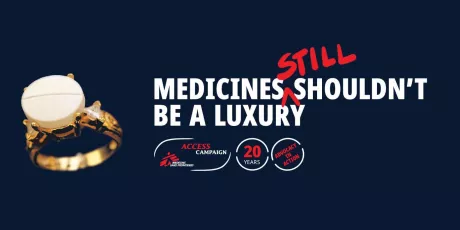European Parliament Working Group on Innovation, Access to Medicines and Poverty-Related Diseases
Putting Patients’ Needs First
Supporting better innovation, access to medicines and healthcare to combat poverty related diseases
SAVE THE DATE
Lunch Debate
AIDS treatment gap widening in Sub-Saharan Africa: what does the European Union do?
Hosted by Michael Cashman, MEP
European Parliament, Brussels
Room tbc
23 June 2010, 12.30-14.00
Since the start of the epidemic, HIV/AIDS has created an acute public health crisis in many countries requiring an emergency response to the resulting high mortality and the spread of the disease. To date, much has been done to tackle HIV, but urgency of the situation still calls for a sustained and expanded response over a long period of time — the battle is not over yet. Médecins Sans Frontières (MSF) has recently published a report presenting the main findings of an analysis carried out in eight countries (Malawi, Mozambique, Zimbabwe, South Africa, Lesotho, Kenya, Uganda, DRC ) over the past year, highlighting the HIV/AIDS treatment crisis widening in sub-Saharan Africa and the consequent risks for the life of people affected by the disease.
The European Commission and the European Union’s Member States are both donors to the Global Fund and use bilateral channels for HIV/AIDS interventions in third countries. However, it is increasingly difficult to know what funding goes to them; as part of the aid effectiveness agenda, the Commission and many Member States are moving towards (sector) budget support modalities, which by definition are not earmarked. Overall the European Union tends to “rationalise” the number of sectors per donor. But this concept of division of labour can be problematic in practice, when donor exits are not compensated by increased funding for health from other sources, as national budget.
During the round table MSF, other civil society representatives and the Global Fund will be presenting their concerns in a debate with representatives of the European Commission and the incoming Belgian Presidency of the EU.
Sandwiches and drink will be available.
If you need a badge, please provide your date of birth (requested for security reasons).
